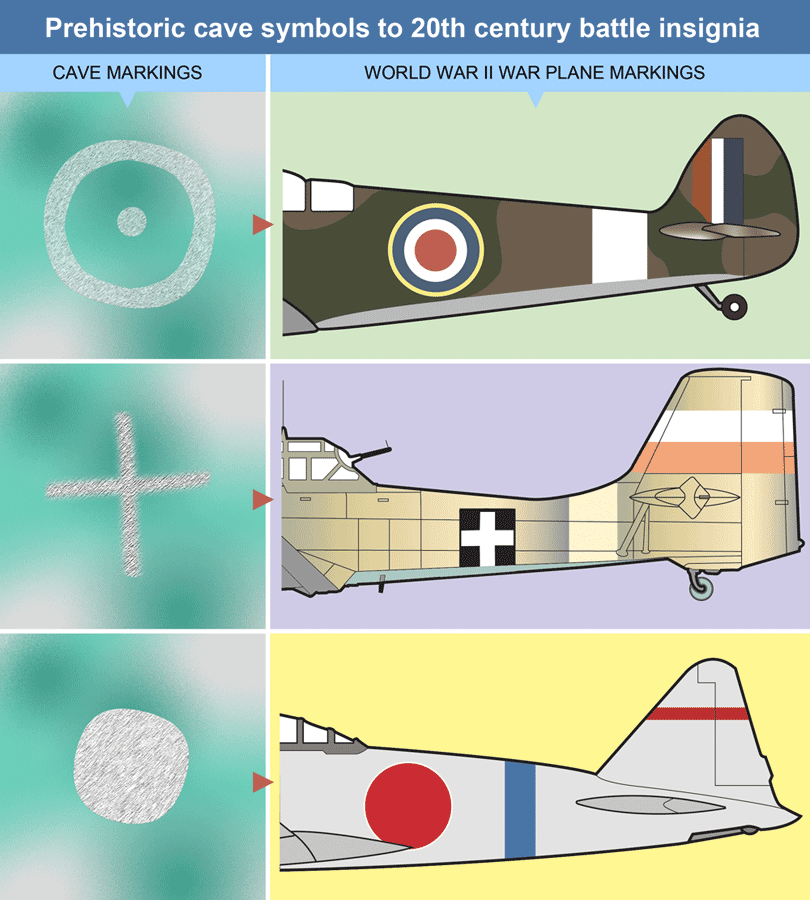
Logos, as we understand them today, appeared after the invention of printing. Representational visual imagery though, dates as far back as to the abstract symbols and images found in early stone and cave markings. Many of these early graphic symbols form the bases of some of the current symbol and insignia still in use today.
An insignia is a symbol used to represent or distinguish groups and organisations. Insignia do not require the use of written text. The symbol element is still a common feature of modern logos.

Correlation between cave markings and modern insignia
A logo is primarily a unique visual image that is created for and used to represent a company or organisation.
We can go further and say that a logo is either text based or can be a combination of both text (writing) and graphic imagery (symbol).

Example of a typographical (primarily text-only) logo
Though many logos consist of just writing or text, albeit bespoke, stylised text, many others are composed of two elements. These are a text or ‘Logotype’ element, coupled with a graphic or ‘symbol’ element.
Its a fact that many successful companies with recognisable logos, comprising of both logotype and symbol, find that often, the use of just the symbol or graphic part of their logo is as effective as using the complete item.

A symbol element - view the complete logo
To complicate the logo vs symbol picture even further, some logos consist of text in conjunction with a high percentage of graphical content. However,
because the graphical part of these

logos is so integrated with the text, the logo graphics cannot be separated from the text in order to be used as a stand-alone symbol.
A logo identifies and distinguishes its company or organisation. Good designers have the ability to create distinctive and effective logos that can convey a variety of signals. A unique, well designed logo indicates professionalism and attention to detail. It can symbolise style, creativity and even indicate a particular industry or sector.
As a company becomes established, its’ logo will come to represent the brand and the qualities others attribute to that brand. Those qualities could be expertise, value for money, trustworthiness etc. On the down side, a logo can represent the negative qualities attributed to a company.
To be effective, a logo needs to be applied consistently to as many items and in as many arenas as possible. This means application to different medium in a multitude of sizes. It may need to be reproduced at a small size onto stationery or large, onto signage, livery and exhibitions. It will also need to be effective for digital viewing.
The word logo is thought to be an abbreviation of Logotype. Logotype is a name derived from the printing industry where it was used by early printers to describe a single piece of type (group of letters) that printed a name.
Logos is Greek for ‘word’. The word Logogram is also Greek and translates as ‘word picture’ which we can assume to mean, a symbol.
It is fairly clear that Logotype, logos and logogram all bear some relation and give some meaning to the item we know today as a ‘Logo’.